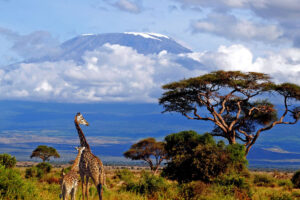Tanzania Dar es Salaam. KCB Bank has graduated to tier one status after increasing its asset value to Sh1.04 trillion. For a bank to earn tier one status, the highest ranking in the banking industry, it should boast assets of at least Sh1 trillion, according to the Bank of Tanzania (BoT).
The growth in the KCB’s assets, which is equivalent to a 105 percent increase within five years, was mainly driven by growth in customer deposits and profit, according to the bank’s managing director, Cosmas Kimario.
He revealed that customer deposits grew by over 103 percent in the last five years (2017–22), while profit before tax grew by 182 percent in the same period.
“We are grateful that our bank is now one of the big lenders in Tanzania’s banking sector,” underscored Mr Kimario.

He said the bank’s handsome performance was triggered by strong bank strategies as well as improvement in the country’s business environment. Deploying digital technology in its operations was cited as another key driver for the growth. The bank, said Mr Kimario, had focused on strengthening service delivery through alternative channels as opposed to branch networks alone.
“Digital services like internet banking, mobile banking and point of sale have increased efficiency in service delivery to our customers,” he recounted.
“Above all, we have been investing in human resources to speed up our efficiency.”
The bank’s board chairman, John Ulanga said the bank was implementing an expansion plan to reach more Tanzanians across the country.
“We have a strategy to ensure organic expansion by opening five new branches in different regions with business potential in the near future.”
The bank’s head of finance, Mr Willis Mbatia, said that the KCB Bank’s profit before tax by the third quarter ending September 2022 was Sh22.4billion.
This, he said, is an increase of 39 percent compared to the same period in 2021.
Share this news
This Year’s Most Read News Stories

Rare megamouth shark found in Zanzibar for the first time – why so little is known about it
The recent sighting was only the sixth time a megamouth had ever been found off the coast of Africa.Continue Reading

Tanzania can benefit from strategic investment in national pride
Travelling to a few places so far, I discovered that the Tanzanian passport can change the way one is treated at airports and international bordersContinue Reading

Tato faults Zanzibar mandatory insurance for arriving visitors
Tato chairman has dismissed the new policy is an unnecessary and duplicative burden on touristsContinue Reading











